One of the unifying threads of my time in Asia-Pacific this winter has been the time I have spent with some amazing #MeToo warriors in Hong Kong and Australia. Take a tour with me.
From “homebreakers” to heroes
Last week, here in Sydney, I met with a group of Muslim women who described to me the opposition they encountered some 30 years ago when they opened the first refuge for Muslim women who were experiencing domestic violence. The Muslim Women’s Association started by holding meetings in founding members’ homes, and had just one small house to rehouse families experiencing domestic violence.
Some of the women I sat down with last week were among those original members, or came on board shortly after. They laugh as they share memories of the early days when they were dubbed “homebreakers” and their husbands were told to, “control your wife!” They were courageous in speaking publicly about the existence of domestic violence within Muslim families (domestic violence sadly exists in families of all faiths and non-faith), at a time when family violence was still a largely taboo subject.
Today, the Muslim Women’s Association offers services to women and families of all faiths and none, and operates 33 safe houses across Western Sydney. It provides support services to men, women, and children escaping domestic violence, including: assistance finding permanent housing, court support, counselling and trauma recovery assistance, driving lessons, financial information, childcare, and much more.
The “divorce lady”
On my way to Sydney, I spent a week in Hong Kong (watch for my upcoming podcast with democracy activist Benny Tai). When I lived in Hong Kong in the early 1990’s, I had a nickname in the press – I was “the divorce lady”.
This was because 25 years ago, I was just starting up Hong Kong’s first free legal advice clinic, based in a fledging Women’s Community Centre which itself was located in a public housing project in a poor part of the territory.
I was told that this would not be a service that would work in Hong Kong, since Hong Kong Chinese women would not talk to a stranger about their family problems.
On the Advice Centre’s opening night, woman after woman walked quietly in and took a seat in the waiting room. I let our volunteer lawyers know that the waiting room was full.
The Lai Kok public housing project still looks much the same, I thought, as I walked into it a few weeks ago after taking the MTR transit system. The Women’s Centre however, has transformed. It has moved into much bigger and better premises. It boasts a multidisciplinary professional staff. And the Centre now provides a wide range of social services to 150,000 women each year.
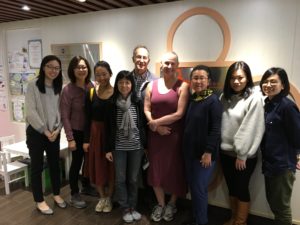
Julie (and husband Bernie and daughter Hope), with staff at the Hong Kong Women’s Counselling and Legal Support Centre
Twenty-five years on, the Women’s Counselling and Legal Support Centre (just inserting this hyperlink gives me goose bumps – this would have been unimaginable when I left in 1992) has now grown into a longstanding and multifaceted service for women experiencing marital conflict and sometimes of course, domestic violence. Today there is a telephone hotline, a counselling service, and dozens of lawyers on the volunteer lawyer roster.
Every one of the young, energetic, passionate workers I met at the Women’s Centre knew me as the “divorce lady”, and we all laughed a lot about it that afternoon.
Hong Kong’s first Rape Crisis Centre
The woman who ran the Women’s Centre 25 years ago has moved down the road to launch a new project: Hong Kong’s first Rape Crisis Centre. Linda Wong now heads up the Rainlily rape crisis centre, which opened in 2000 and is trying to break down taboos around talking about rape and sexual assault. Rainlily – named after a flower that blossoms after rain, as a symbol of the possibility of positive and resilient attitudes after rape and sexual assault – operates an emergency hotline encouraging women to report sexual violence, and offers counselling to deal with the aftermath of trauma.
Many women, feeling ashamed and embarrassed, find it very difficult to tell their families that they have been raped or sexually assaulted. When I visited the small premises of Rainlily a few weeks ago, there was an extraordinary photo exhibit featuring survivors. Each photo included a statement by the subject (“my story”) as well as her name.
Linda Wong describes the exhibit as “survivors voicing with courage”. She continues, “Sexual violence is unseen, and victims of sexual violence are invisible.” I have a deep sense of how much courage being publicly identified in this way takes, particularly in a culture that has historically labelled sexual harassment and violence as a “Western” phenomenon, alien to Chinese culture. The exhibit is intended to encourage more women to be identified as survivors, and to take advantage of the support, counselling and other assistance that Rainlily can offer.
Australian Muslim women taking power
Finally, this week in Sydney I have been part of an amazing symposium of Muslim women scholars and activists who have created and operate a dazzling array of research-grounded community projects: they challenge the stereotype of the passive, oppressed, and silenced Muslim woman.
There is no silence in this room! And certainly no passivity.
Australian Muslim women are saying “me too” – fighting sexism and speaking out about violence against women.
#MeToo lessons
There are a number of themes that thread through the conversations I had as I travelled through Asia Pacific this past month that are relevant for #MeToo work in North America.
The founders of these programs and services to support women experiencing marital conflict and violence faced opposition from their communities and often even from their families. Some of these activists were called names and their motives maligned.
But they saw themselves as responding to unmet needs within their own families, as well as the larger community. Maha Abdo, the founder of the Muslim Women’s Association in Sydney told me:
“It was on a needs basis. It wasn’t a choice. It was because my mother, my grandmother, women in the community had needs that were not being met. It wasn’t really planned, what we did in those early days. My heart said ‘you need to do this’. My mind said ‘you need to do this’.”
Silma Ihram, a long-time educator, adds:
“Changes takes numbers – and it takes strength.”
The commitment and passion of these early advocates for women enabled them to ride through hard times, and they are keenly aware – and rightfully proud – of what their persistence and resilience have achieved.

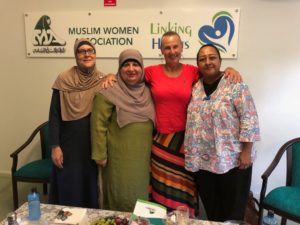
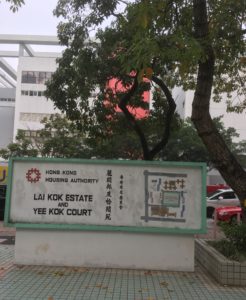
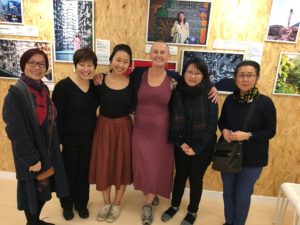
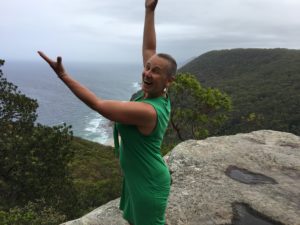
Are there any such support groups in Canada and Kenya?
Hi Julie, it was really great to meet you in Hong Kong. Your works of encouragement is soooo important to us. Much of my life has been spent on walking along with women and victims of sexual violence and I have witness how survivors had gone through their recovery road to regain their rights and dignity. I think these photo exhibition of survivors is really a breakthrough for Asian women in Hong Kong. All the good work should be given to all our survivors of sexual violence as it represents their courage to overcome all the difficulties as sexual violence is one of their toughest times of their life. Rainlily’s 18th years of journey has not been an easy nor smooth one as we are not government subvented services. We hope that you can continue support and walk along with us in future.
Happy International Women’s Day!!! Linda, RainLily, A rape crisis centre for women in Hong Kong.
It was all my pleasure. After so long! Be well Julie